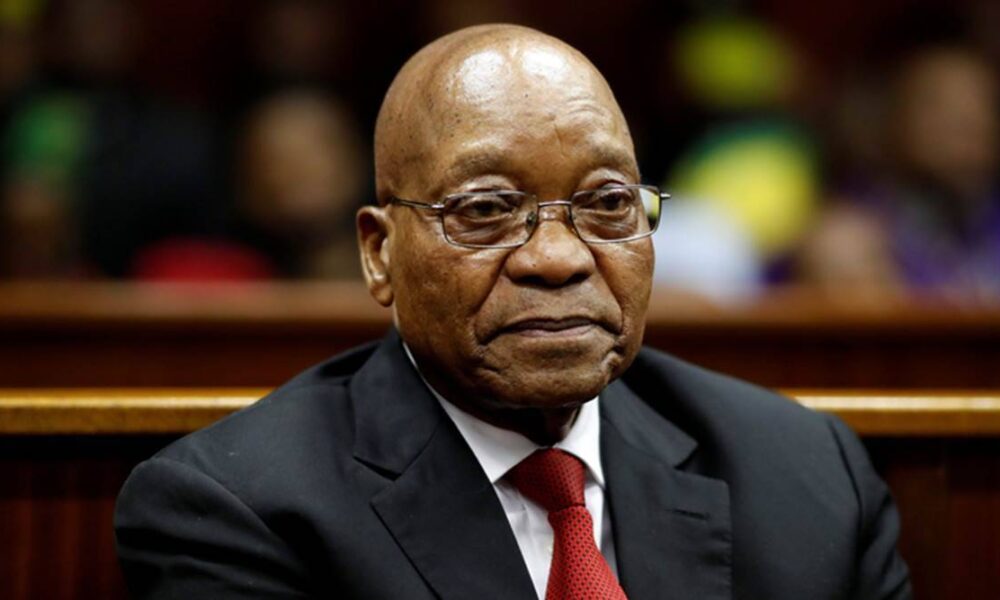While looting and violence rocked the country, the Constitutional Court was on Monday reviewing a landmark decision to jail former president Jacob Zuma for contempt of court.
On June 29, the country’s top court had slapped Zuma with a 15-month term for snubbing a probe into the corruption that stained his nine years in power. Zuma began the sentence last Thursday but is seeking to have the ruling set aside.
’’What we are saying is that this court made fundamentally rescindable errors,’’ Zuma’s lawyer, Dali Mpofu, argued in an online hearing before nine of the court’s 11 judges.
Zuma had been treated unfairly and his ’’right to mitigation was limited’’, he said.
But one of the judges, Justice Steven Majiedt, bluntly said Zuma had been convicted ’’because he disobeyed the order of this court’’, AFP reported.
Mpofu and his team argued that the country’s Constitution rules supreme even over the Constitutional Court.
He told the court the case would, for the first time, illustrate that the Constitution was supreme, a news website reported.
“It is the Constitution that is supreme, not the Constitutional Court. The Constitutional Court is, of course, the most important body when it comes to our constitutional framework, but the court itself is an entity that is subject to the Constitution.”
Mpofu added: “There’s nothing extraordinary in accusing a court – so to speak – of breaching Section 35 of the Constitution, it happens all the time. The peculiar thing here is that the court in question happens to be the Constitutional Court.”
Zuma argued in court papers that it would be “just and equitable” for the Constitutional Court to order his release from prison, pending the outcome of his rescission application. This is because of his age, him being of “unstable health” and not a flight risk, as well as because of the dangers posed by the Covid-19 pandemic.
Mpofu says Zuma’s legal team is primarily seeking a rescission of the contempt ruling made against him but is also simultaneously challenging the appropriateness of the prison sentence imposed on him. He says Zuma has the right to approach the court if he believes his constitutional rights have been infringed.
Mpofu highlighted that Zuma is also seeking an order in the Pietermaritzburg High Court ’’declaring that all persons accused and convicted of the crime of contempt of court, whether in civil or criminal proceedings, are entitled to the rights enshrined in sections 9(1), 12 and 35(3) of the Constitution and that it is unconstitutional to sentence an accused in civil contempt of court proceedings without a trial as set out in the Criminal Procedure Act, 1977, more specifically where the sole intention of the proceedings is imprisonment and/or other criminal consequences’’.
Justice Chris Jafta did not concur with this approach, saying: “You have argued that your client’s rights in the Bill of Rights are limited by the process followed in the judgment under consideration… that process is a well-established common law process.”
To successfully apply for a rescission of the Concourt’s judgment against him under the common law, State capture inquiry secretary Itumeleng Mosala is of the opinion Zuma would have to show one of the following
Mosala believes Zuma has failed to show a single one of these grounds for rescission.
Meanwhile, the SANDF said on Monday it was deploying troops to Gauteng and KZN to help crush mob violence and looting as unrest sparked by the jailing of Zuma entered its fourth day.
“The South African National Defence Force (SANDF) has commenced with pre-deployment processes and procedures in line with a request for assistance,” the military said in a statement.
Personnel will “assist law enforcement agencies deployed in Gauteng and KwaZulu-Natal provinces respectively to quell the unrest that has gripped both Provinces in the last few days”, it said.
